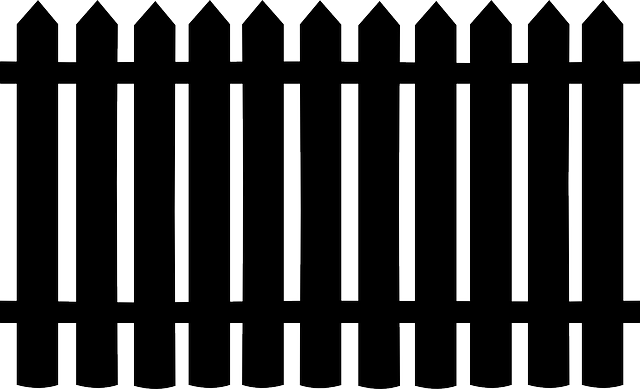In New Bedford, Massachusetts, where seasonal changes significantly impact outdoor structures, proper fence maintenance is crucial. This article provides comprehensive guidance to New Bedford property owners on preparing, maintaining, and protecting their fences year-round. We explore the unique climate considerations, offer a detailed seasonal preparation checklist, discuss common issues specific to Massachusetts, provide prevention tips, and guide selection of durable materials for extended fence longevity.
- Understanding New Bedford's Climate for Fence Maintenance
- Seasonal Preparation Checklist for Your Fence
- Common Fence Issues in Massachusetts and Prevention Tips
- Choosing the Right Materials for Season-Long Protection
Understanding New Bedford's Climate for Fence Maintenance
New Bedford, Massachusetts experiences a diverse range of weather throughout the year, from cold, snowy winters to hot, humid summers. This varying climate plays a significant role in fence maintenance. During the winter months, extreme temperatures and snow can cause wood fences to crack or rot, while high humidity levels in summer can lead to mold and mildew growth.
Therefore, regular inspection and maintenance are crucial for keeping fences in good condition. Property owners should look out for signs of damage, decay, or infestation and address these issues promptly. In addition to seasonal checks, applying weather-resistant treatments and sealing can help protect fences from the elements, ensuring they remain sturdy and attractive throughout the year.
Seasonal Preparation Checklist for Your Fence
Before the changing seasons set in, it’s crucial to prepare your fence for the upcoming weather conditions. For New Bedford residents, this means considering both the cold winter and the warm summer months. A comprehensive seasonal preparation checklist includes cleaning the fence of any debris or buildup, inspecting for any damage, and applying necessary repairs.
Start by removing any vegetation that might have grown along the fence line during spring and summer. Next, power wash the fence to remove dirt and grime, ensuring it’s clean before sealing or painting. Check for loose posts, rotted planks, or damaged rails—repair or replace these elements promptly. Lastly, treat wooden fences with a waterproof sealer or paint to protect them from the elements, extending their lifespan and maintaining their aesthetic appeal throughout the year.
Common Fence Issues in Massachusetts and Prevention Tips
In New Bedford, Massachusetts, fences often face various challenges due to the region’s changeable climate and seasonal conditions. Common issues include rot and decay, particularly in wooden fences, caused by prolonged exposure to moisture during the winter months. Snow and ice can also lead to fence damage if not properly maintained. Additionally, strong winds and storms throughout the year can result in fencing instability or even structural failure if the fences aren’t securely anchored.
To prevent these problems, regular cleaning and inspection are key. Removing leaves, debris, and snow buildup during fall and winter can significantly reduce moisture contact with fence materials. Using water-resistant treatments on wooden fences before winter sets in provides an extra layer of protection against rot. Ensuring proper drainage around the fence line helps to keep water from pooling, which can cause damage over time. Regular tightening of fence posts and brackets, especially after storms, will maintain stability and longevity.
Choosing the Right Materials for Season-Long Protection
When it comes to protecting your New Bedford, Massachusetts property’s fence throughout the varying seasons, selecting durable and suitable materials is paramount. The harsh New England winters can take a toll on even the sturdiest fences, making it essential to choose materials that can withstand snow, ice, and freezing temperatures without compromising integrity or aesthetics. Opting for high-quality, weather-resistant options like treated wood or vinyl ensures your fence remains robust against the elements.
Considered long-lasting alternatives, these materials not only resist rot and decay but also are less prone to warping or breaking in extreme conditions. Treated wood, for instance, is infused with preservatives that protect it from pests and moisture, while vinyl offers excellent cold resistance and minimal maintenance requirements. This proactive approach to material selection is a fundamental step in securing the longevity and resilience of your property’s fence against seasonal challenges.
